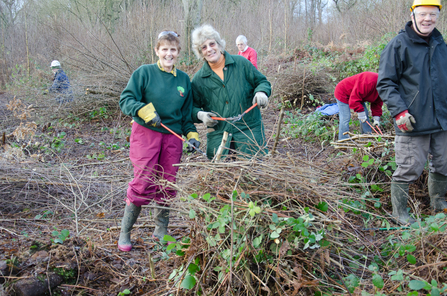Nature groups are calling on the PM and Chancellor to announce a major funding package to provide new green jobs and training through nature recovery work, as part of their spending review. The proposals, known as the National Nature Service, would offer living wage jobs on nature projects to those unemployed, as an alternative to Universal Credit, helping to tackle our employment and nature crises, boost our green recovery from COVID-19 and leave a legacy of healthier, greener communities.
Support the National Nature Service
The calls come as new research[1] shows there is overwhelming support for the idea that Government should pay for employment in restoring nature and highlights public concerns over the Government’s performance, and lack of investment, in tackling the nature and climate crises. It also follows an alarming series of reports in the last few weeks of UK failures for nature.
The new YouGov research for Wildlife and Countryside Link has found that [2]:
- 83% of the GB public support the idea of the Government funding jobs to improve nature and offering these to those who are unemployed. This has majority support across all cross sections of the British public – with around 8 out of 10 people of all, ages, social groups, and regions, and Conservative, Labour and Lib Dem voters in Britain all supporting this idea
- Less than a quarter (23%) of the British public believe the Government is tackling climate change and declines in wildlife well
- 18-24 year-olds are the most sceptical of how well the Government is dealing with the climate and nature crises, with only 16% saying the Government is doing well
- Only 18% of people believe that the right level of investment is being made by Government in tackling our nature and climate change crises, with 54% saying there is too little investment, 7% saying there is too much investment, and 20% unsure.
- 18-24 year-olds feel the most strongly that the Government is failing to invest enough in the environment, with only 12% believing the right amount is being spent
*A breakdown of findings for each question can be found in the notes to editors and datasheet


